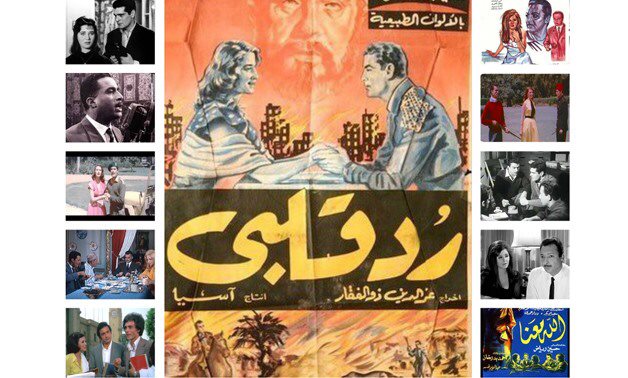
File: Some Egyptian movies that portrayed the revolution that changed both the Egyptian and the international history at that time.
CAIRO – 23 July 2022: The cinema will remain always the truest and the most real archive of history.
As we are commemorating July 23 revolution anniversary, we cannot forget that Egyptian filmmakers presented many movies that portrayed the revolution that changed both the Egyptian and the international history at that time.
Egyptian cinema has played a great role in blessing the revolution through monitoring and documenting it. It conveyed the revolution through a series of distinguished films.
It monitored how it was planned and its positive results, and presented the negative aspects as well. The Egyptian cinema history contain movies that immortalized the great revolution in the minds and hearts of Egyptians over generations.
Some films focused on the revolution advantages, while others focused on the revolution disadvantages. From the movies that reflected the revolution, its goals and positive results is the famous movie Rudda Qalby (Give me my heart back) which was produced in 1957.
The great late Egyptian director Ezzeldin Zulfikar succeeded to convey to the audience the life of a poor peasant who his son (Ali) performed by the veteran actor Shoukry Sarhan, managed despite his difficult circumstances to join the aristocrats-only military faculty.
Later Ali rose to power after the revolution, all of these historical social facts were presented while covered by a sweet immortal love story that took place between the most famous couple in the Egyptian cinema who were princess Angy, performed by the late great actress Mariam Fakhereldin and Aly.
This amazing love story that love thrive to overcome all social differences between them, to live happily ever after at the end.
‘Port said’ movie from the movies that have showed the bright side of the revolution and its leader, the Egyptian President at that time Gamal Abdel Nasser. The ending scene of the movie was for an Egyptian brigade singing the name of Nasser.
‘Port Said’ movie showed true scenes of destroying the statue of Ferdinand de Lesseps in Port Fouad city. The statue was the symbol of European Colonialism.
Al-Aydi Al-Naema (The Soft Hands) movie was produced in 1964, it reflected how Nasser after the revolution managed to minimise the big gap between the high class and the new middle class.
Al-Aydi Al-Naema focused on the importance of work as the main tool to judge people not their social class.
The Egyptian cinema producers after the revolution produced movies that conveyed the corruption and the bad circumstances that existed before the revolution like El Qahira 30 (Cairo 30) and Fi Baytona Ragol (A Man in Our Home), they criticised the past and provided context for the revolution.
‘Allah Maena’ (God with us) movie dealt with the officers’ participation in the war in Palestine and how they were severely injured, which led to anger among them.
As a result of this outrage the Free Officers Movement headed by Nasser were formed.
This movement was formed from army officers to save Egypt from King Farouk and his entourage corruption. The movie ends by ousting the king and the rose of the revolution.
In 1976 there were a lot of Anti-Nasser campaigns, and as he was the revolution symbol, the revolution was subjected as well to a lot of criticism.
This was crystal clear from the type of movies that were produced at that time. Al-Karnak (1975), the 1978 Wara Al-Shams (Beyond the Sun), and the 1979 Ihna Bitua' Al-Autobis (We Were Just Riding a Bus), all revolves around the same theme condemning the practices of both Nasser and the Egyptian intelligence against citizens.
They focused on citizens’ unfair arrests and torture in prisons, in addition they showed the oppression and injustice that the citizens were subjected to from Nasser regime.
Comments
Leave a Comment